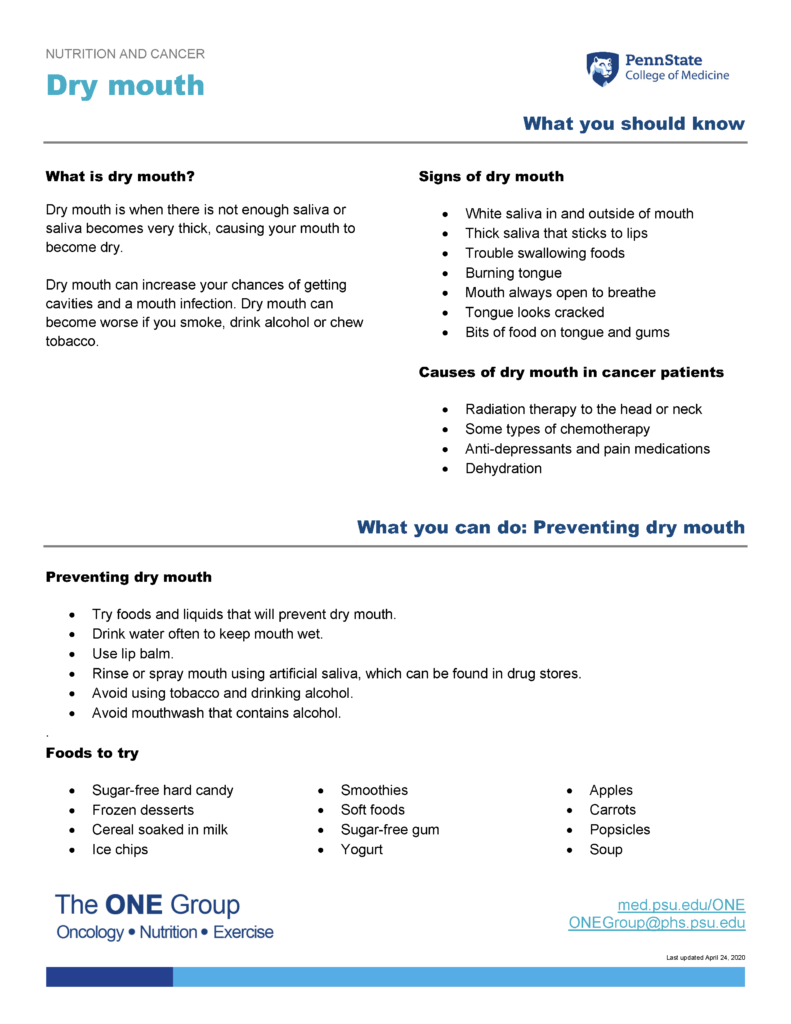Learn about dry mouth in people with cancer in this guide from The ONE Group (Oncology – Nutrition – Exercise) at Penn State College of Medicine.
Jump to topic
Search
What you should know
What is dry mouth?
Dry mouth is when there is not enough saliva or saliva becomes very thick, causing your mouth to become dry.
Dry mouth can increase your chances of getting cavities and a mouth infection.
Dry mouth can become worse if you smoke, drink alcohol or chew tobacco.
Signs of dry mouth
- White saliva in and outside of mouth
- Thick saliva that sticks to lips
- Trouble swallowing foods
- Burning tongue
- Mouth always open to breathe
- Tongue looks cracked
- Bits of food on tongue and gums
Causes of dry mouth in cancer patients
- Radiation therapy to the head or neck
- Some types of chemotherapy
- Anti-depressants and pain medications
- Dehydration
What you can do: Preventing dry mouth
Preventing dry mouth
- Try foods and liquids that will prevent dry mouth.
- Drink water often to keep mouth wet.
- Use lip balm.
- Rinse or spray mouth using artificial saliva, which can be found in drug stores.
- Avoid using tobacco and drinking alcohol.
- Avoid mouthwash that contains alcohol.
Foods to try
- Sugar-free hard candy
- Frozen desserts
- Cereal soaked in milk
- Ice chips
- Smoothies
- Soft foods
- Sugar-free gum
- Yogurt
- Apples
- Carrots
- Popsicles
- Soup
Foods to avoid
- Pretzels
- Hot wings
- Chili peppers
- Peanut butter
- Chewy candy
- Tough meats
Recipe
Apple Smoothie
Ingredients:
1 apple
½ cup milk
⅓ cup plain yogurt
1 tbsp. honey
5 almonds
Directions:
- Peel and cut apple into fourths.
- Put chopped-up apple and almonds into blender.
- Add the milk, honey and yogurt.
- Blend until there are no chunks.
Notes
References
- American Cancer Society
- Cleveland Clinic
- National Cancer Institute
- U.S National Library of Medicine

